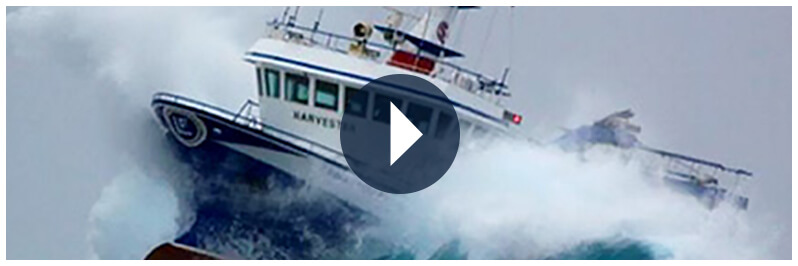Maritime law, also referred to as admiralty law, encompasses a wide range of federal statutes and court-mandated laws governing the navigable waters in and surrounding the United States. These laws can go by a number of different names, such as the Jones Act or the Longshore Act, but they all work together to protect the rights of maritime workers and provide financial compensation for illness or injury suffered while employed on the water.
What does this mean for you? It means that, if you are injured or fall ill while working on the water in any capacity, maritime law has your back. If your employer or the owner of the vessel you work on is found to be at fault for your condition, maritime law allows you to seek financial compensation for a number of related issues, including pain & suffering, medical expenses, and more.
Furthermore, maritime law governs many different legal interactions that may arise between different parties in the course of maritime work. These can include insurance claims relating to ship, cargo, or personnel, claims between different maritime workers, or claims between a maritime worker and their employer.
It can, however, be a very complex and unique sector of law far above and beyond typical personal injury law. Maritime law in the United States has hundreds of years of history and precedent behind it, and they can be difficult waters to navigate. If you need help with a maritime injury case, you need the offshore injury lawyers of O’Bryan Baun Karamanian.
O’Bryan Law has combined decades of experience with maritime law in its numerous forms, from injured workers to workplace illnesses and everything in between. We’ll travel anywhere in the United States to fight for our clients, no matter where they live or work, and we believe anyone who works or enjoys recreation on the water should get the justice they deserve. Contact the authorities on maritime law today and let us fight for your financial security in the face of injury.
Maritime Law Questions & Answers
What Is Maritime Law?
Maritime law, also referred to as admiralty law, is a body of law that governs the maritime industry in the United States.
Made up of several laws, conventions, and treaties that have developed over hundreds of years, maritime law is designed to protect workers, settle disputes, manage how cargo and shipping can proceed, and even dictate how business can be done under certain circumstances. Every country has their own individual maritime law that dictates how these issues can be managed, and the United States has some of the most complex and wide-reaching maritime laws in the world.
When Does Maritime Law Apply?
In the United States, maritime law applies to anything that happens in navigable waters, defined as any water used for trade, travel, or commerce between states or nations.
Generally speaking, maritime law exists to settle disputes that may arise while doing business or traveling through navigable waters. One of the biggest aspects of maritime law involves when a crew member falls ill or is injured during the course of their work – the law exists to help establish liability and hold the responsible party financially responsible for certain damages that may occur.
While a number of injury laws exist both on the water and on the land in America, maritime law is often the most applicable for maritime injury cases, and O’Bryan Law specializes in these laws and statutes.
Can Maritime Law Help Me If I Am Injured?
American maritime law has many laws, acts, and statutes designed to help injured workers seek compensation and determine liability for their illness or injury. By contacting a maritime law attorney as soon as possible after your injury, you can review the facts of your case and work to determine what compensation you may qualify for, and how you could seek justice for your injury.
Maritime law has a lot in common with typical injury law in these cases, but maritime laws are designed to cover injuries that occur in areas not covered by state civil codes, which are often used to cover injuries on land. This gives maritime law a greater degree of flexibility when approaching these injuries.
Who Enforces Maritime Law?
In the United States, maritime law falls under the jurisdiction of the Coast Guard. While this can get a little less-than-clear when it comes to international waters, American maritime law is handled by the Coast Guard, at least when it comes to on-site enforcement.
Of course, the Coast Guard can’t do everything, particularly when it comes to matters of personal injury, and that’s when you need the services of a maritime law firm like O’Bryan Law. We can help you better understand the laws that may apply to your case, and help you get the compensation you deserve.












